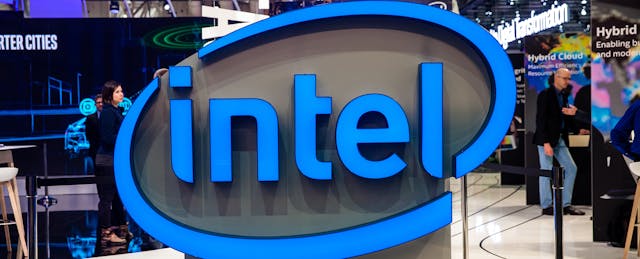Just a few weeks ago Intel Education was advocating for edtech startups to apply for the company’s annual education accelerator program. Now, nearly a month after applications have closed, the education arm of the Silicon Valley giant has announced that their program will not be returning this fall.
The decision rides on another unexpected announcement: Intel Education will be joining forces with a group at Intel that deals with government solutions and initiatives. The two groups will be formally known as Intel’s “Public Sector Group.”
“We have decided not to host the accelerator this year to allow us time to evaluate all activities in our expanded team,” John Galvin, vice president of Intel Education and Government, wrote in an email on Monday to the accelerator’s mentors and alumni. “In the fall of 2016, Intel Education Group expanded to become the Public Sector Group, with added government segment responsibilities.”
It remains unclear what the Public Sector Group oversees exactly. Officials from Intel say the two combining groups are still working out details as to which parts of each will remain and which will face the chopping block alongside the accelerator program.
With applications recently closed on April 17, the timing is particularly surprising. “It’s not optimal to say, ‘Oh sorry we won't have the party,’” a spokesperson from Intel Capital tells EdSurge. “But as you can imagine when you take two different organizations and put them under one roof, there are a lot of moving parts to figure out.”
This fall would have marked the third cohort of edtech startups to the accelerator program, which provides $100,000 along with mentorship and access to funders, to participating companies. In return, Intel capital receives up to six percent of equity for the companies.
Over the last two years Intel has accepted and graduated 16 startups. Fourteen of them have gone on to raise capital outside of Intel, which representatives from Intel Capital say “indicates confidence” in the program.
“The Intel Accelerator has been incredible for our business,” Suz Somersall, CEO of KiraKira (which participated in the second accelerator cohort) wrote to EdSurge in an email. She points out the her company has two major partnerships in the works, one with a top-three tech company that KiraKira made ties with through the program.
According to the spokesperson, more than 400 companies have applied for the program across its first and second years. No numbers were provided on the most recent applicant pool.
As of Monday afternoon, applicants had not been informed about the decision. The spokesperson said applicants are instead expected to find out that the accelerator has been called off via the program’s website, where startups were directed to look for other updates about program such as application status. (As of Monday afternoon, Intel Education Accelerator’s website showed no indication of the cancelled accelerator. It has since been updated.)
Intel Capital did not disclose how much equity it holds in companies that have been through the accelerator. But the spokesperson says economics were “not a driving factor” in the decision to remove the accelerator from the joint body, which has been in the works since last fall.
“This is not driven by an expectation we would get a quick [financial] turnaround,” he says. “The reason Intel Capital got involved in this was because we wanted to seed and promote innovation in edtech.”
Intel Capital will remain an active investor in the 16 companies that have completed the program.
As for whether or not the accelerator will return for a third run in 2018, the spokesperson says it’s too soon to tell “but nothing is off the table.”


